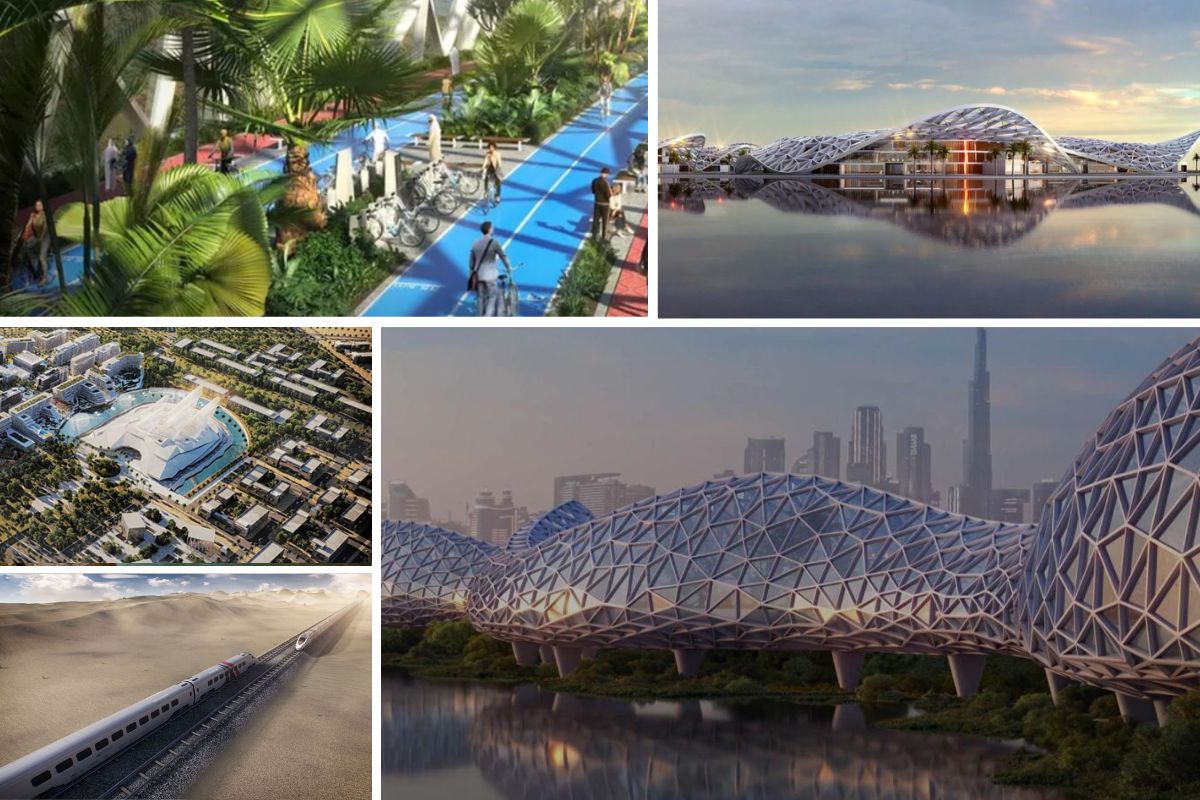The UAE is currently embarking on the development of several ambitious megaprojects, poised to shape the future of the nation and redefine its position as a global and regional leader.
The upcoming megaprojects of the UAE are also a testament to the nation’s continued efforts and commitment to shaping its future.
With the combined support of the government and the private sector, these megaprojects are expected to drive economic growth, create jobs, and position the country as a global hub for innovation, tourism and opportunities.
That being said, here is a look a some of UAE’s upcoming megaprojects that will transform the nation over the next 10 years:
1. Etihad Rail passenger train
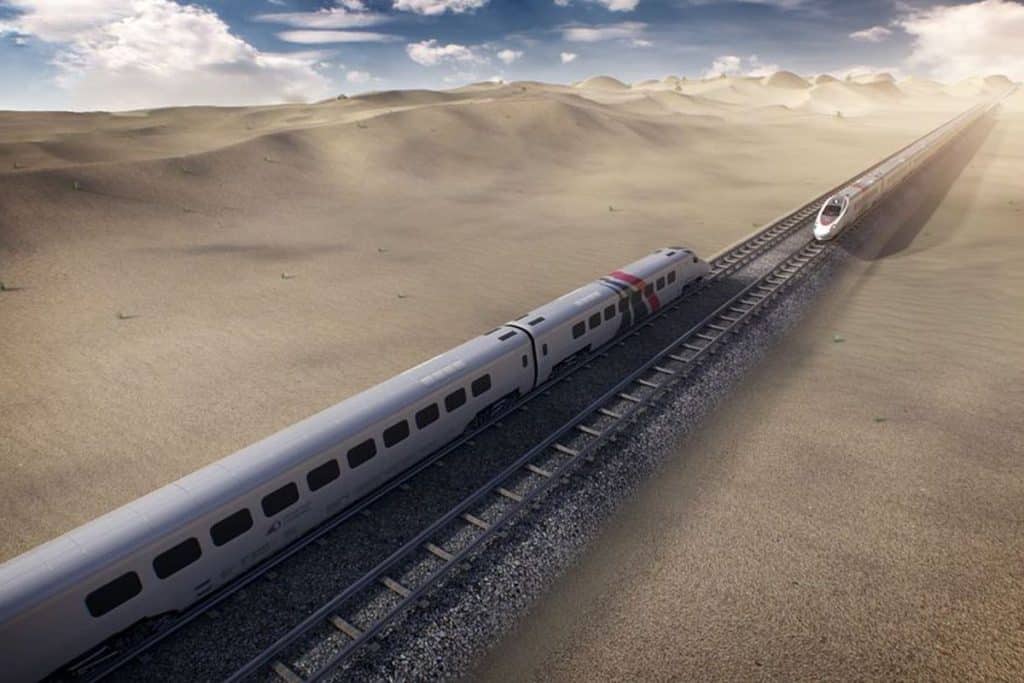
Etihad Rail unveiled a prototype of the passenger train, showcased on UAE’s 51st National Day, which was on December 2, 2022.
“It is a privilege for Etihad Rail to serve the nation, and we were honored to be showcased in UAE’s National Day Celebrations. This national showcase provided the perfect opportunity to give the UAE public a glimpse of the future, unveiling our first prototype passenger train,” said in a tweet.
The rail, on completion, will be utilised initially to transport heavy goods, before carrying over millions of passengers by 2030 – thus, reducing travel time between cities.
Etihad Rail will travel at speeds of up to 200 kilometres per hour, potentially slashing travel between emirates by half.
The Etihad Rail is set to extend its operations to commuters by 2030. While authorities have yet to reveal an official date, Etihad Rail said “by 2030, the number of passengers is expected to reach more than 36.5 million annually” in a statement made in December 2021.
The new passenger service will run as fast as 200 kilometres per hour, with stations stretching from Sila near the Saudi border to Fujairah on the East Coast.
Passengers will be able “to travel from Abu Dhabi to Dubai in 50 minutes, and from Abu Dhabi to Fujairah in 100 minutes,” the statement said.
The national railway network is currently working closely with the Federal Transport Authority and various transport authorities across UAE to continue its development of existing networks to improve passenger connections.
2. Burj Binghatti
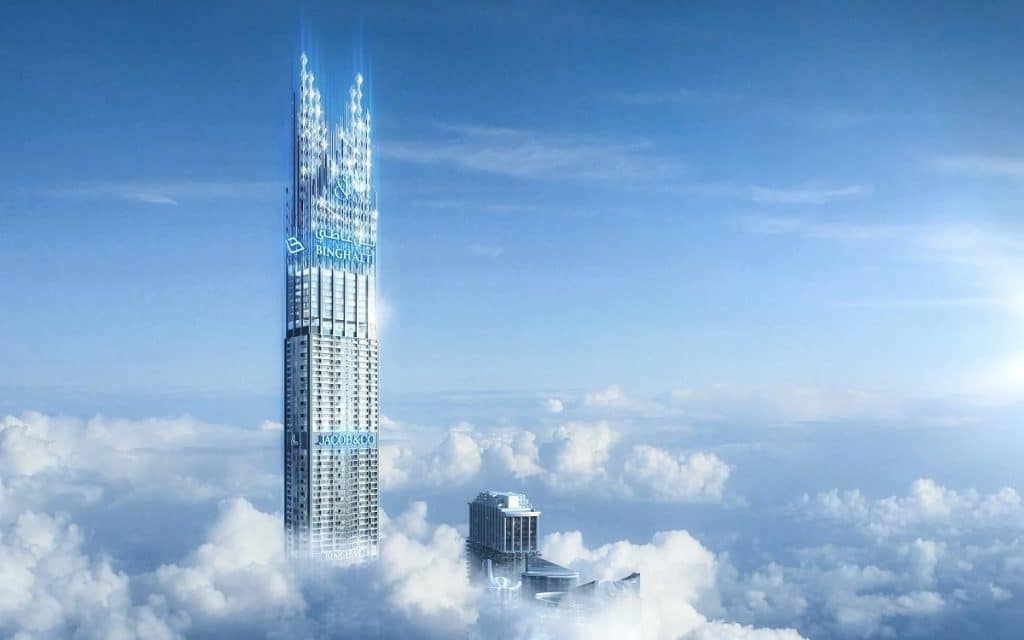
Set to surpass the Dubai’s 393-metre Princess Tower as the world’s tallest residential tower, the Burj Binghatti is a collaboration between property developer Binghatti and luxury jewellery company Jacob & Co.
While the final height for the Business Bay skyscraper has not been revealed yet, plans to build the residential tower first surfaced after a a celebratory launch event held at the Coca-Cola Arena on November 16, 2022.
So far, the Burj Binghatt will have over 100 storeys and will feature 2- and 3-bedroom residences, reportedly priced at AED8 million and AED10 million, respectively.
The “hypertower” will also include exclusive penthouses, private member’s club, an infinity pool overlooking the Dubai skyline and an in-house concierge service offering private chefs, bodyguards, chauffeurs and chefs.
“We took inspiration from the complex horological movements that beat in Jacob & Co timepieces and we integrated them into the key elements of the tower. The diamond-shaped spires sitting at the peak of the tower are reminiscent of an actual crown, an ornament of unique finesse inspired by the design of Jacob & Co’s finely cut gems,” Binghatti’s chief executive officer Muhammed Binghatti said.
He added that the residential tower will be “the apex of the luxury narrative in this evocative construction, a signature feature that add further grandeur to the city’s skyline.”
3. Abu Dhabi Midfield Terminal
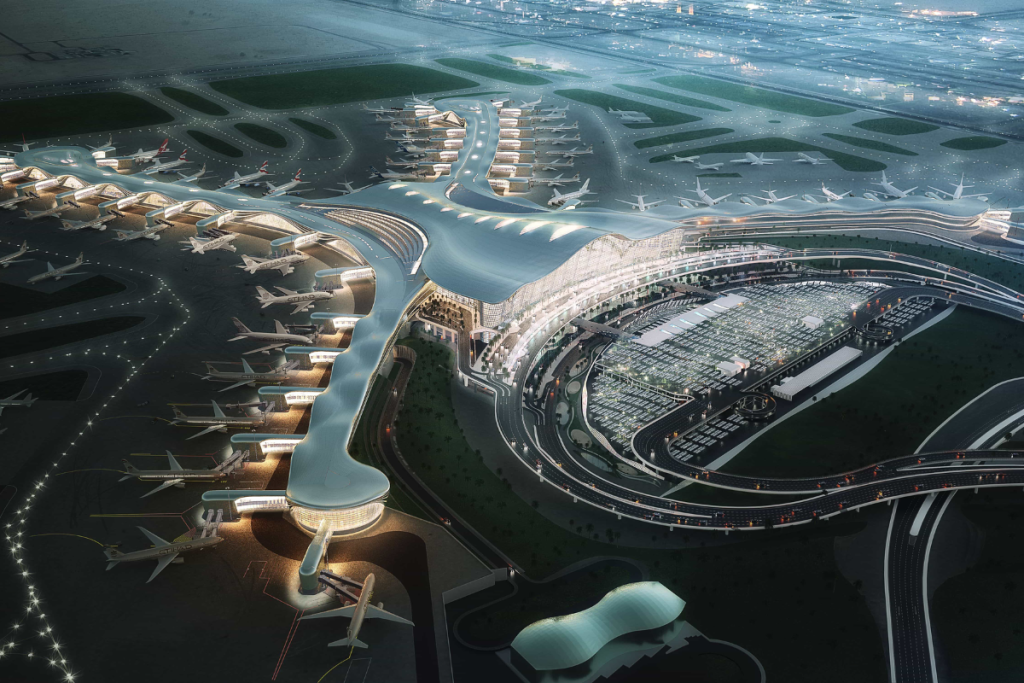
Abu Dhabi’s much-awaited new Midfield Terminal will open towards the end of 2023, according to a report by Momberger Airport Information.
According to the report, the opening is most likely to take place on December 2 this year, which is also the UAE National Day.
Construction for the new terminal began in 2012 and was due for completion in 2017, however due to a few challenges, the construction was delayed.
On completion and launch, Abu Dhabi’s Midfield Terminal Building can accommodate up to 11,000 passenger per hour, or about 45 million passengers annually.
Once opened, Terminals 1 and 2 will be shut down permanently, while T3, the latest addition, will likely be mothballed, the Momberger Airport Information report said.
“Depending on traffic development, at one point it could be used again during peak times as a remote boarding lounge. It could also be developed into a standalone terminal including landside, for example, for budget carriers,” the report added.
Moreover, there is a “road tunnel leading from the midfield to the present terminal, which would facilitate easy connections for passengers. The midfield terminal can also be expanded with a satellite boarding concourse. Another tunnel, which can accommodate an APM is already present,” the report said.
4. SeaWorld Abu Dhabi
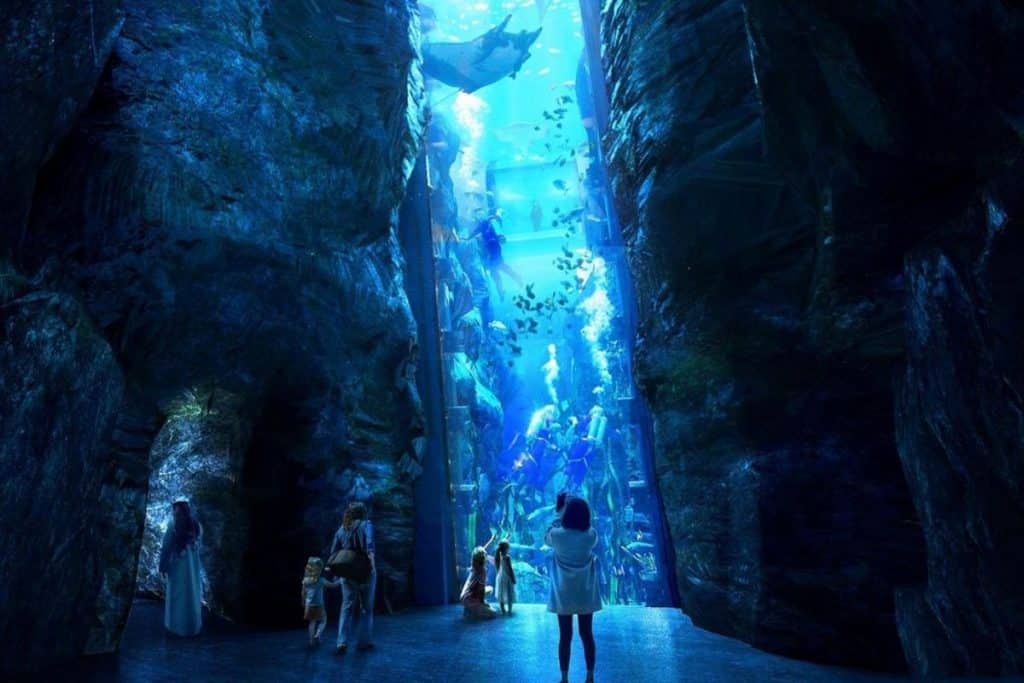
Abu Dhabi is now home to the world’s largest marine-based theme park, SeaWorld Abu Dhabi.
Open since February 8, 2023, the 183,000-square-metre venue will be a research and rescue center and will also be home to over 150 marine species, and will be led by marine scientists, veterinarians, animal care professionals, rescue experts and educators.
Built on five indoor levels, the venue will also have a rescue team, who will be available to support authorities 24/7.
Visitors at SeaWorld Abu Dhabi can take advantage of immersive and interactive exhibits.
“The central ‘One Ocean’ realm of SeaWorld Abu Dhabi links six distinct marine environments throughout the park, all of which tell a unified story based on the interconnectivity of all life on earth and in our ocean,” SeaWorld Abu Dhabi said in a statement.
“Within the central hub, guests will encounter fascinating ocean stories presented in an expansive 360-degree fully immersive media experience, transporting them from one fascinating place to another, while they encounter much of the ocean’s diverse marine-life, learning how the One Ocean current impacts us all,” the statement said.
SeaWorld Abu Dhabi reportedly contain over 58 million litres of water.
5. Dubai Wasl Tower
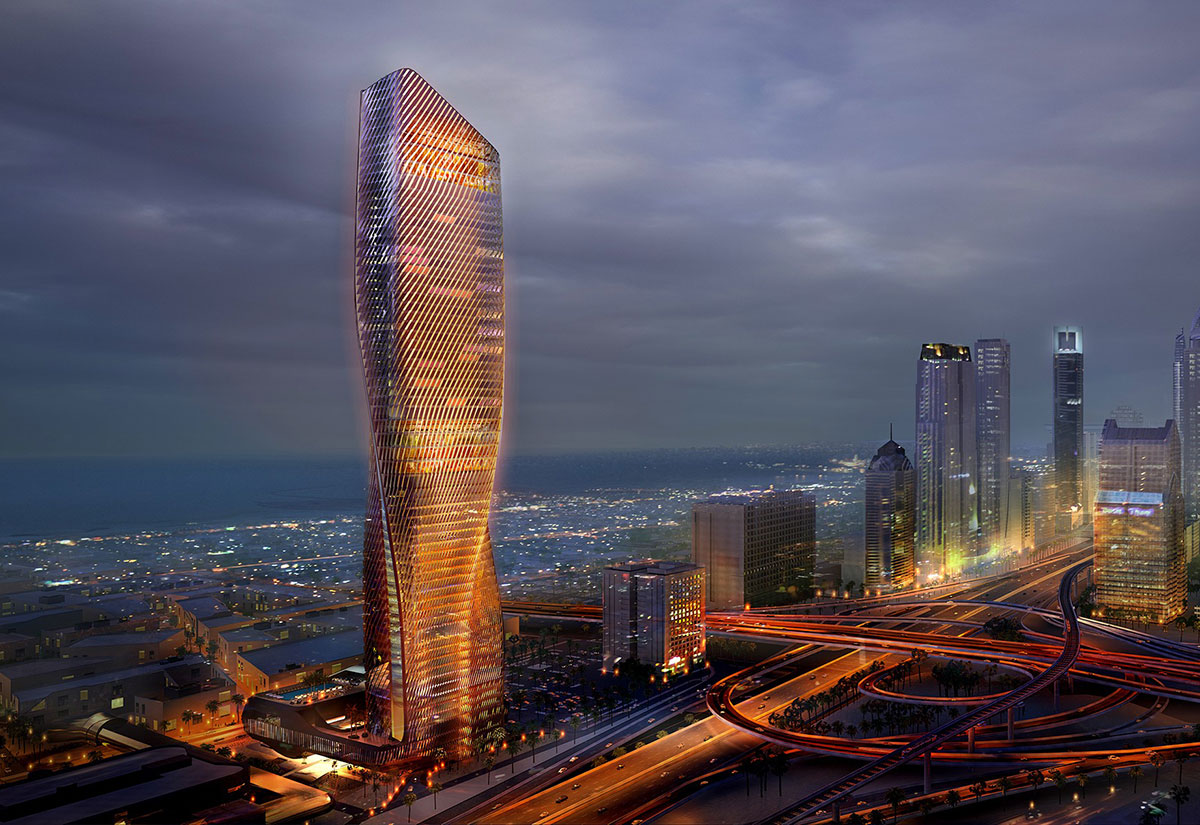
Set to open by Q2 2024, the Dubai Wasl Tower is an asymmetrical, twisted, tower with a height of 302-metres.
In October 2022, Arabian Business reported that structural works on the 56th floor of the tower have been completed and the façade has progressed to level 13, citing Wasl asset management group.
Once completed, the tower’s ceramic façade will display an illusion of dynamic motion, and will have a total of 64 floors with 229 residential units, 258 hotel rooms, 185,345 square feet of office space and 11 parking floors.
The Wasl Tower is designed around its Z axis, featuring a classic ‘contrapposto’ movement. This will create the illusion that the tower is facing every direction.
6. Baccarat Hotel and Residences Dubai
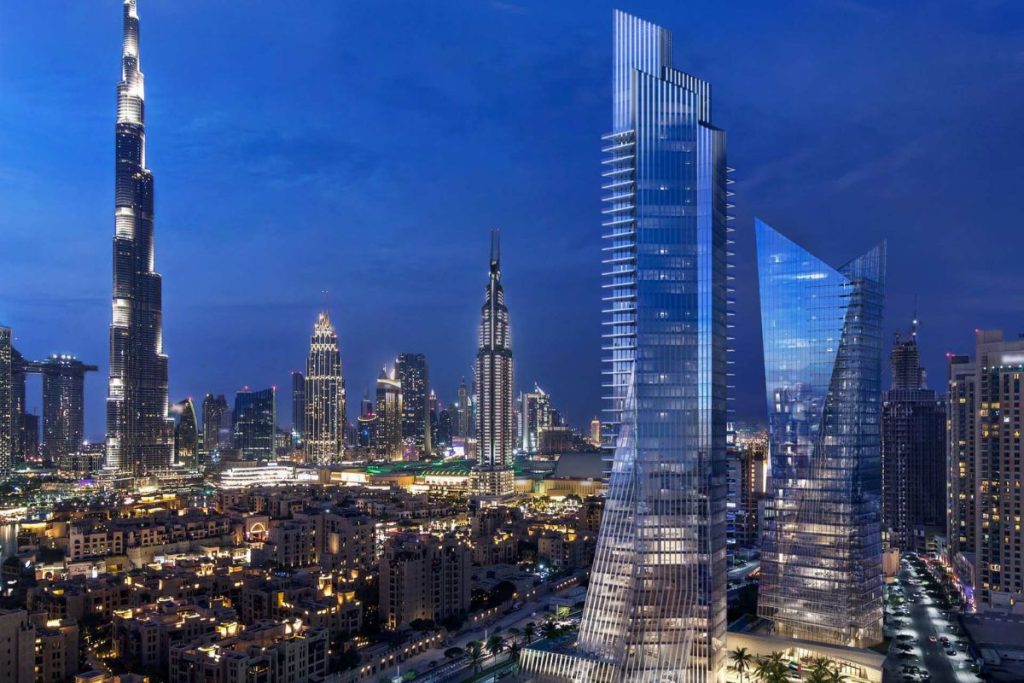
A new skyscraper will add to Downtown Dubai as Shamal Holding has announced its plan to open Baccarat Hotel and Residences in 2026. The building, which will have glass façade is designed by Studio Libeskind and interior design studio, 1508 London.
Launched initially in New York in 2015, the Baccarat Hotels and Residences will be the first-of-its-kind in Dubai.
Inspired by crystalline, the residences will offer views of the Burj Khalifa, Al Fahidi Fort, the Dubai Frame, and the Dubai Creek.
The hotel, which will be located in Tower One, will have 144 rooms and suites, whereas the residences will see 49 rooms and four food and beverage outlets.
Although managed by SH Hotels and Resorts, Shamal Holding will collaborate with Dubai-based developer, real estate investor and asset manager H&H Development.
“Best known for its regal elegance, the Baccarat brand has one of the richest brand equities in the luxury hospitality sector,” Shamal Holding’s chief portfolio management officer Abdulla Binhabtoor said.
Binhabtoor added: “Dubai is known for its luxury hotel portfolio, and we are confident that this mixed-use development will be a new highlight for both residents and visitors. We are working closely with a range of partners as we curate this unique development.”
In addition, reports suggest that a Baccarat hotel has also been confirmed to open in Riyadh’s Diriyah giga-project.
7. Atlantis The Royal
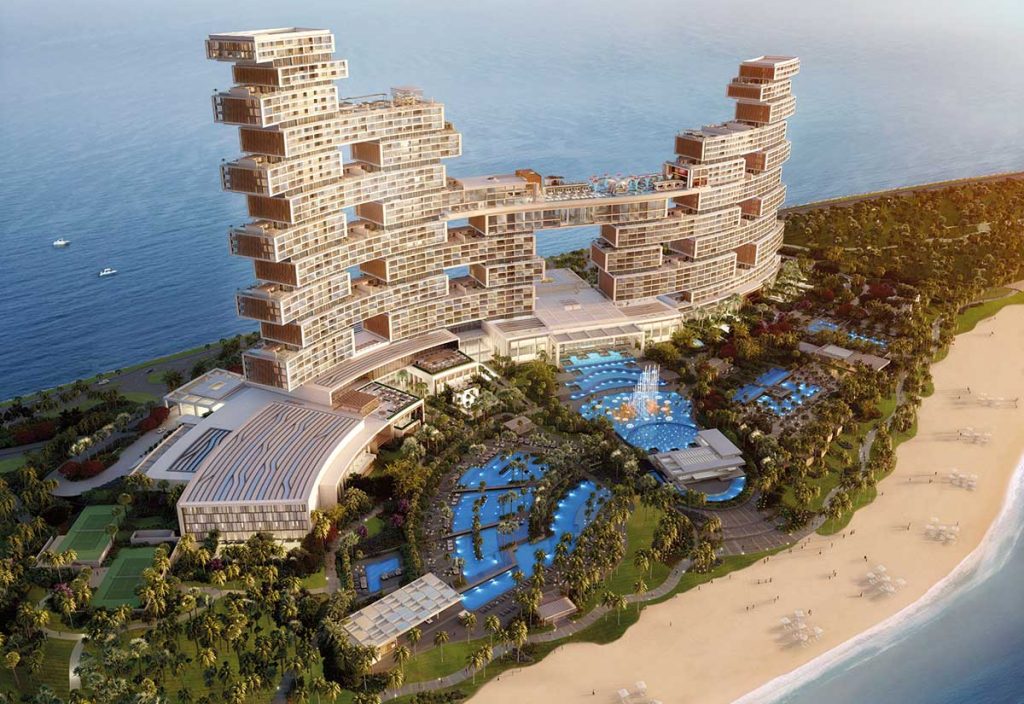
Atlantis The Royal, a luxury resort is set to open to the public from February 10, 2023.
The 43-storey cantilevered resort, had a grand opening weekend in January, and saw world-renowned celebrities such as Beyoncé, who performed on the night, followed by Swedish House Mafia, Jay-Z, Kendall Jenner, and other celebrities from the world over.
Atlantis The Royal features a skyblaze fountain, 231 luxury apartments, 693 hotel rooms and 102 suites, all of which offer views of the Arabian Sea and Palm Island.
French interior design expert Sybille de Margerie has reportedly commissioned a host of talented modern artists to personalise each residence.
The resort will also house 90 swimming pools, including a rooftop infinity pool on the 22nd floor, suspended 90 meters above ground level.
Atlantis The Royal will also feature restaurants run by global celebrity chefs, some of which include Gastón Acurio, Costas Spiliadis, Nobu Matsuhisa, Ariana Bundy, Heston Blumenthal and José Andrés.
8. Saadiyat Grove
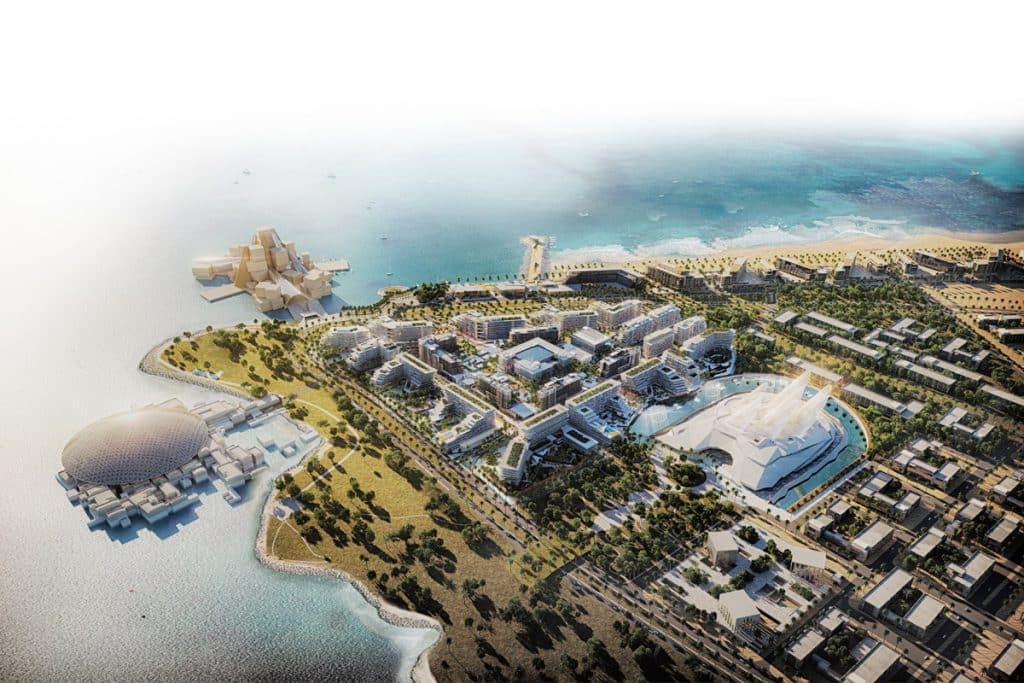
Abu Dhabi’s new project Saadiyat Grove, which is valued at $1.5 billion, will be built on the emirate’s Saadiyat Island, CRTKL’s associate principal Geoff Ford told Arabian Business in October 2022.
CRTKL is a global cultural agency, which specialises in architecture, planning and design.
The project is set to be a “connective fabric” between the Louvre Abu Dhabi, the Guggenheim Abu Dhabi and the Zayed National Museum.
On completion, the Saadiyat Grove will feature 60,000 square meters of retail, entertainment and leisure spaces, and will have approximately 3,000 homes, two hotels and co-working spaces for new enterprises and startups.
Saadiyat Grove draws inspiration from traditional, urban design principles, CRTKL said, which can be seen in the streets and squares, all of which have been organised in a “city-layering plan” across multiple levels.
Food and beverage outlets will be at street level. Retail outlets will be featured at street and first level, and will allow visitors and residents to grab a view of the museum from all levels, the agency said.
“Saadiyat Grove is a testament to the shared vision of CRTKL and Aldar Properties, together we have been able to set a new benchmark for mixed-use design and development. With community and culture at its core, Saadiyat Grove exemplifies the modern lifestyle and points to the future of residential, retail and entertainment environments,” Ford said.
Ford added: “Driven by Environmental, Social and Governance (ESG) principles, we advance upon the 15-minute city concept at Saadiyat Grove with a heightened pedestrian experience that we have enabled year-round with low carbon solutions and passive strategies that combat the urban heat island effect.”
Within the fabric, Saadiyat Grove will see several modes of transport such as motorised bikes, segways, shaded integrated walkways, autonomous cars, shuttle buses and personal rapid transit which is a 100 percent driver-less vehicle which operates in the existing infrastructure.
Additionally, the Saadiyat Grove will also see spaces dedicated to visitors and residents such as libraries and galleries.
The project’s construction is already underway and is set to open to visitors in less than five years, CRTKL’s Ford said.
9. Natural History Museum Abu Dhabi
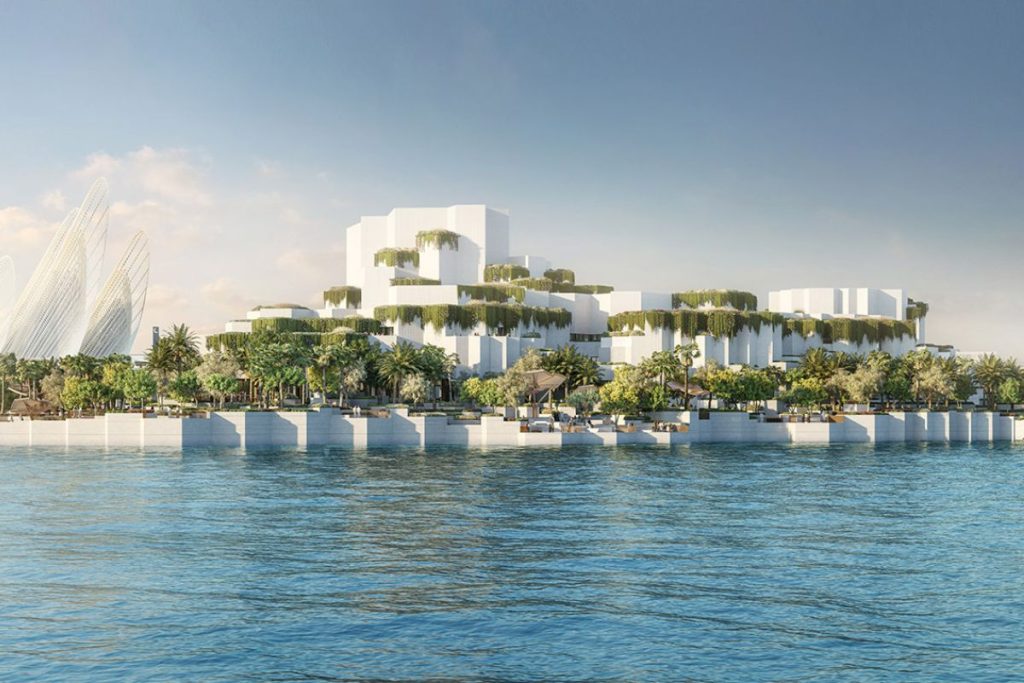
Due to be completed at the end of 2025, the Natural History Museum Abu Dhabi is local
Located at the Saadiyat Cultural District, the Natural History Museum Abu Dhabi will be home to rare natural history specimens on Earth.
The museum, which will also be a “scientific research and teaching institution,” and an educational resource to learn about the planet.
Visitors will embark on a journey through time and space, according to the Abu Dhabi Culture website, and will see the past, present and future of the universe.
“A highlight of the new museum’s collection will be the world-famous skeleton of ‘Stan’, the Tyrannosaurus rex, the Murchison Meteorite specimen, and other spectacular collections as part of its compelling curatorial vision, as well as fascinating experiences which will be created by a dedicated team in Abu Dhabi,” the website reads.
In addition, the museum will undertake studies in areas such as zoology, palaeontology, geology, marine biology, molecular research (aDNA and proteomics), entomology and earth sciences
The museum covers a total area of over 35,000 square metres, and was designed by Mecanoo “to resonate with natural rock formations”.
10. Guggenheim Abu Dhabi
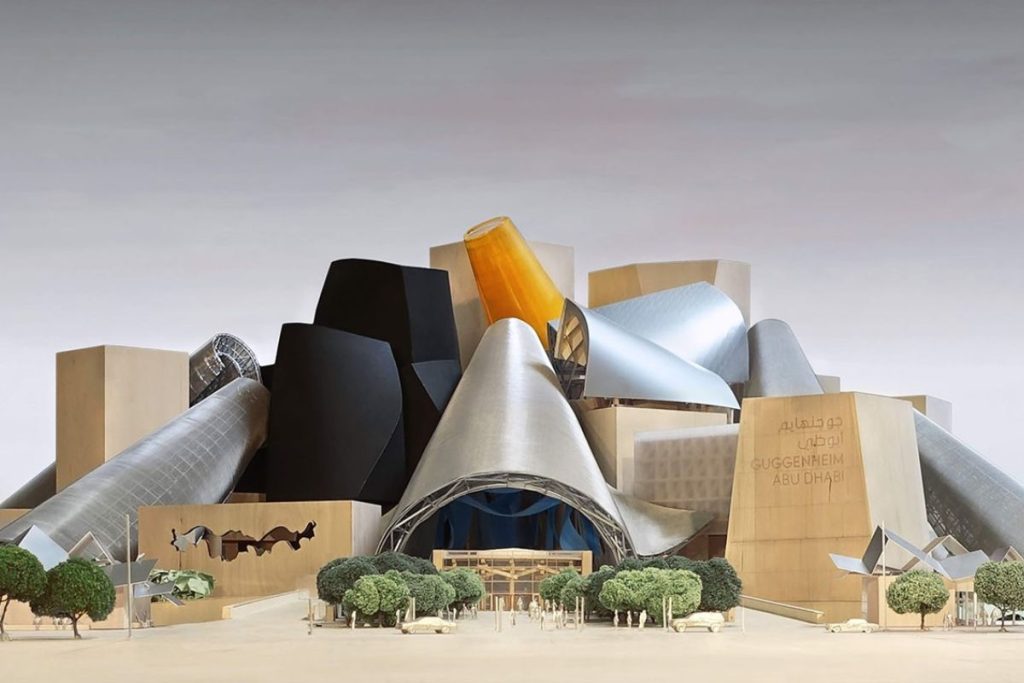
Guggenheim Abu Dhabi will be located at “the heart” of the Saadiyat Cultural District, and is a collaboration between the emirate’s Department of Culture and Tourism and the Solomon R. Guggenheim Foundation.
The museum, which is set to open in 2025, will include collection displays, exhibitions, commissions, research and publications will promote expansive views on the global histories of modern and contemporary art, according to the Abu Dhabi Culture website.
Designed by Pritzker-prize winning architect Frank Gehry, the museum will fuse global modern and contemporary art, and will showcase “different art perspectives” that have shaped the interconnected histories and cultures of our time.
The museum will also display “a global collection” with a focus on West Asia, North Africa, and South Asia (WANASA).
“The museum’s collection highlights points of intersection and transcultural exchange, examines specific contexts and histories, and recognises truly distinctive achievements. Encompassing art since circa 1960, the collection currently comprises over 600 works spanning artistic media, several generations of artists, and an ever-widening number of countries and regions, including a dedicated focus on the Gulf and WANASA more broadly,” the website reads.
Guggenheim Abu Dhabi will also provide a “creative platform” for global artists once open.
11. The Zayed National Museum
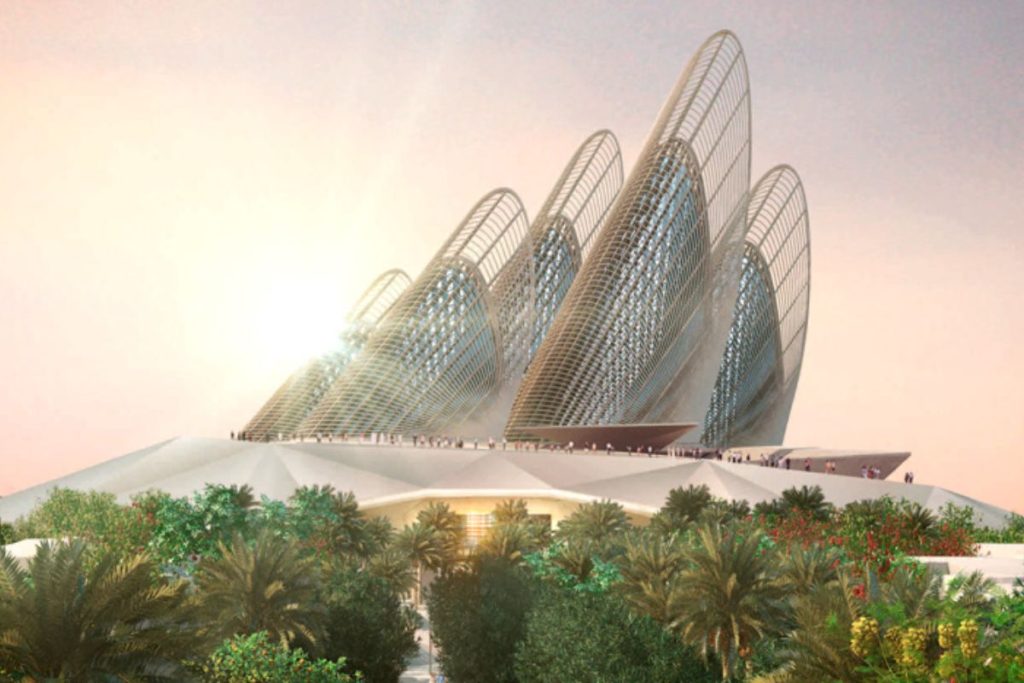
The Zayed National Museum, when complete, is dedicated to the late Sheikh Zayed bin Sultan Al Nahyan, often known as the founding father of the UAE.
The museum, designed by Lord Norman Foster of Foster + Partners, will narrate his story, celebrate his achievements, and feature galleries of his values and beliefs.
“The galleries are inspired by Sheikh Zayed bin Sultan Al Nahyan’s values and beliefs in education, conservation, the environment, sustainability, heritage and culture, as well as his humanitarianism and strong faith,” according to the Abu Dhabi Culture website.
In addition, the Zayed National Museum, which is also located at the Saadiyat Cultural District, will also showcase natural and human history of the UAE, and its “connection with the world”.
Visitors can also learn about “changes to the environment over millions of years and the formation of resources that, through time, have influenced society, trade and economic development,” the website reads, adding that they will also “explore evidence of the human habitation of this area from 200,000 years ago to the present,” in addition.
12. Dubai Vertical City
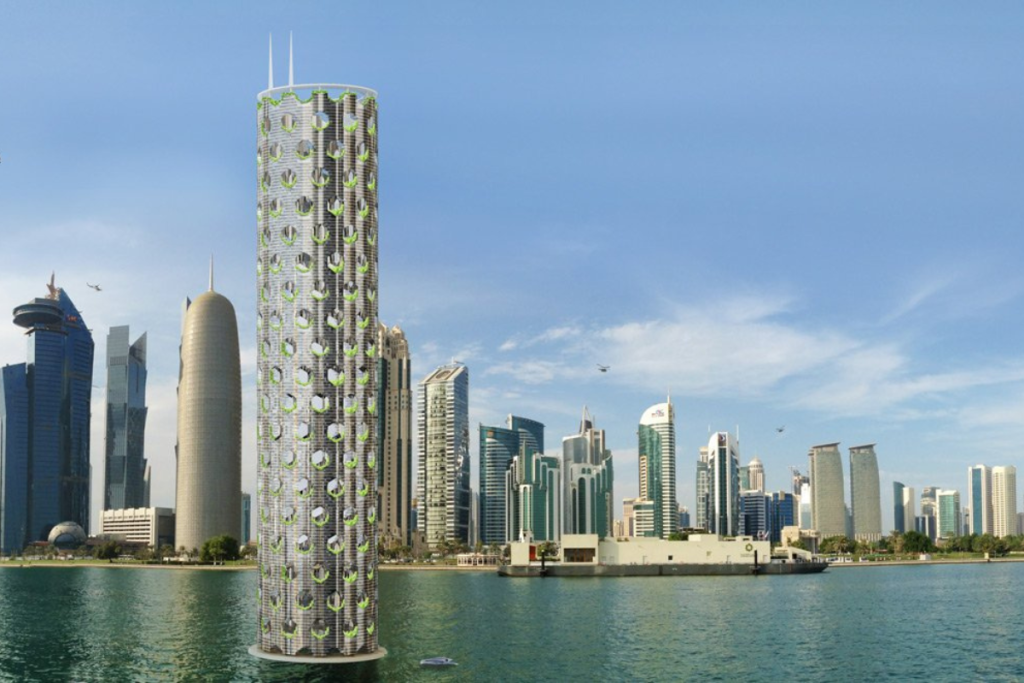
A new floating development, titled ‘Vertical City’ is proposed to open in 2030.
Designed by Italian architecture firm Luca Curci Architects, the concept of the zero-energy building was first presented at the Knowledge Summit in Dubai in 2019.
On completion, the self-sustainable towers that float on water, will house 25,000 individuals and will use renewable resources such as wind turbines and solar panels.
“We will build a new way of living. More sustainable. With more interconnected communities programmes. Deleting suburbs. Reducing poverty”, said Luca Curci.
The development, on completion, will align with the UAE’s sustainability goals and will also feature open spaces to allow natural light and ventilation, Arabian Business reported in January.
In addition, the towers, which has an exterior of photovoltaic glass, will also have underwater floors, that will see apartments, duplexes, villas, offices, stores as well as spas, meditation centres, gyms and luxury hotel rooms with marine views.
Residents and visitors can access the tower by land, water or air.
13. Louvre Abu Dhabi Residences
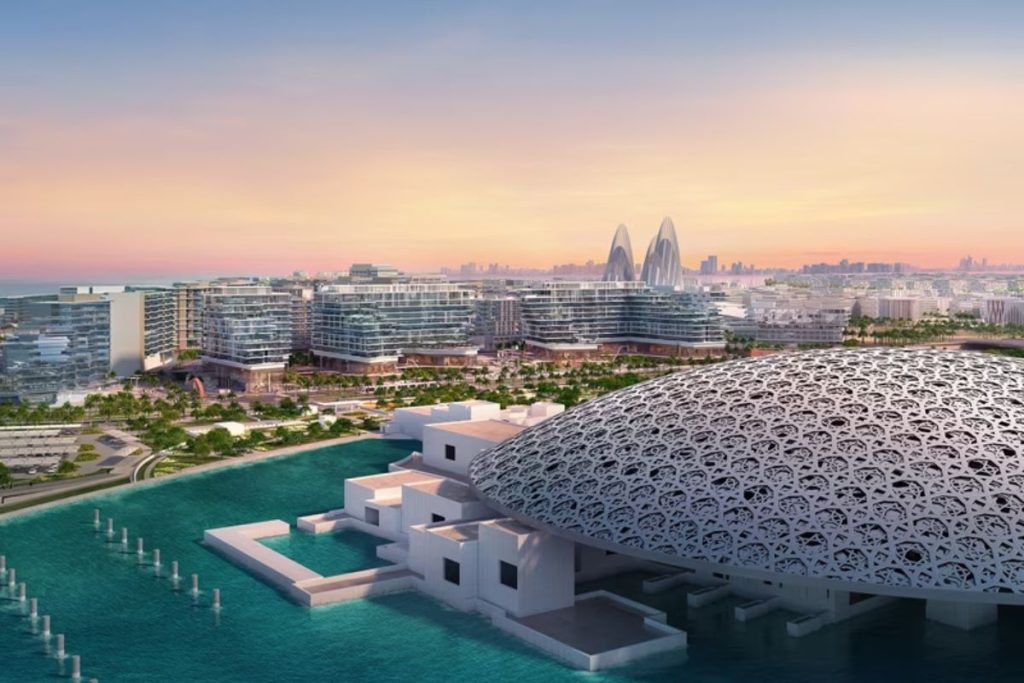
The Louvre Abu Dhabi Residences were first launched in Q1 2022, and is a collaboration between Louvre Abu Dhabi and Aldar Properties.
According to Abu Dhabi Off Plan website, this is an ultra-luxury residential development which is set to be featured on the upcoming Saadiyat Grove community, located on Saadiyat Island.
Residences will feature studio apartments, as well as 1-bedroom, 2-bedroom, 3-bedroom apartments, overlooking the world-renowned museum.
The apartments, which start from AED905,000, are available in two-colour schemes – Dark Premium and Light Premium.
The former set of apartments will feature “a rich palette of cool neutrals, such as charcoal with slate gray undertones,” whereas the latter will feature “taupe and creamy accents,” the website reads.
The interiors of the apartments will be designed with “marble finishes and metallic accents, as well as exclusive artworks featured throughout the living and dining spaces.”
In addition, residents will also be able to take advantage of green spaces, shaded communal areas and covered walkways surrounding Louvre Abu Dhabi Residences, the website reads.
Some 2-bedroom apartments are built with a maid’s room, a walk-in closet, a powder room as well as a storage closet.
Likewise, 3-bedroom apartments are built with a home office, a maid’s room, as well as the same amenities as the 2-bedroom apartments.
The residences will also see an “infinity pool, a well-being centre with a gym and a sauna, a yoga/pilates studio, meditation lawns, a 5-star residential ‘Cinema Privé’ theatre, an indoor children’s play area ‘Creativité Room’, a sunset deck with a juice bar and pool area, a museum-view lounge with a games room, a coffee station, table tennis and billiards and ‘Le Salon Détente’ lounge with co-working spaces, a library, a salon, private meeting rooms and a socialising area,” according to the website.
Residents can also take advantage of an in-house laundry, housekeeping, pet spa and grooming centre, a “complimentary shopping bag drop off to residences, a package/courier delivery, pre-occupation provisions for deliveries, refrigerator stocking and groceries, reservation assistance for travel, car rental and fine eateries, catering and event planning, a personal fitness trainer, art conseiller, 24/7 concierge service and valet service, doorman and bellboy.”
14. Dubai Urban Tech District
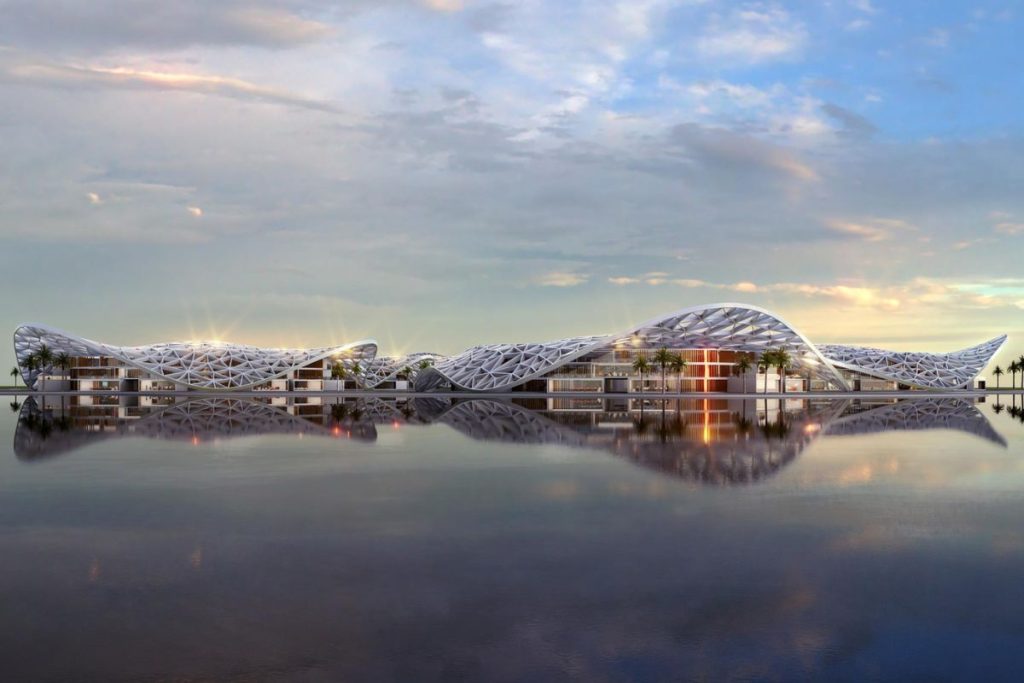
The Dubai Urban Tech District, is developed to be located on the emirate’s Creekside of Al Jaddaf, and will built on 140,000 metre-square of land.
The development, is said to be home to “venture capitals to provide the fuel for entrepreneurs, thus empowering a unique collaborative urban tech eco system,” and will reportedly create 4,000 jobs, according to developer URB’s website.
“Dubai is best positioned to lead the Urban Tech Transformation than any other city in the world. The Urban Tech District will be a new global tech hub for urban innovation. With a total of 140,000 square metres of built up area, it will be the world’s largest urban tech district. Thus making Dubai the centre for urban innovation,” URB chief executive officer Baharash Bagherian said.
Aside from dedicated office spaces, the Urban Tech District — which will follow a zero-carbon policy — will also feature facilities to host onferences, training, research, seminars, business incubation, and various other amenities.
15. Sharjah Floating Theatre
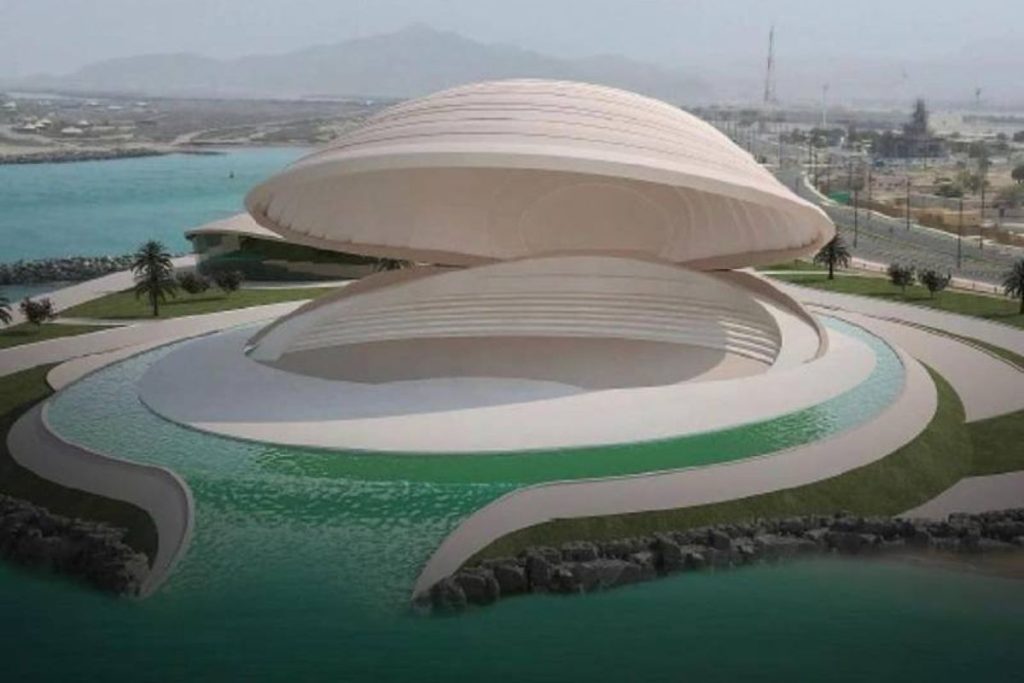
Sharjah will soon be home to a new open floating theatre project, in line with a series of ambitious projects that will transform Sharjah’s east coast, Kalba.
“The theatre, with its distinctive and wonderful destination being linked to the corniche, will provide a complete view of the Kalba Corniche and the Arabian Sea,” the Emirates News Agency (WAM) reported in July 2021.
Sheikh Dr Sultan bin Muhammad Al Qasimi inspected plans for several projects, including the theatre, the report said.
A design inspired which stemmed from Sheikh Dr Sultan, the theatre is shaped like a sea shell, and is in the midst of water basins.
16. Dubai Islands
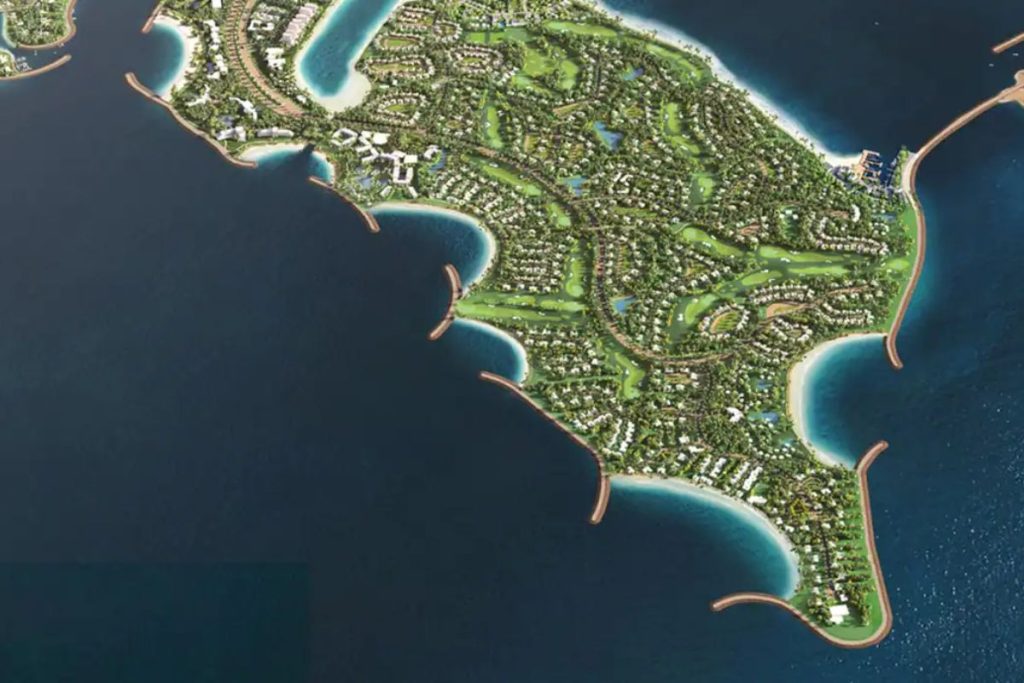
Formerly known as Deira Islands, the Dubai Islands is a “man-made archipelago” off Deira’s shores, the Nakheel website reads.
Developed by Nakheel, the project is currently in progress, and will cover 17-square metres across five isles and will be home to “emerging upmarket residences, hotels, lifestyle projects and marinas.”
About 80 hotels are scheduled to feature on the Dubai Islands, as well as “luxury and wellness hubs, boutiques, family-friendly resorts and eco-conscious options.”
The development will also feature 2-square kilometres of parks and open spaces, premium golf courses, marina promenades and pathways for water and road transportation, walking and cycling, according to the information shared on the website.
The projects “main marvel,” according to the Visit Dubai website will be Deira Central, which will see a wide range retail, entertainment and living offerings.
The Dubai Islands will also be home to the upcoming Deira Mall, which is set to become “one of the city’s biggest shopping centres.”
17. Abrahamic Family House

The Abrahamic Family House is an upcoming unified complex located in Saadiyat Island, Abu Dhabi which will feature a mosque, a church and a synagogue.
The complex will act as “a cultural and architectural beacon of peaceful human coexistence that represents each of the Abrahamic faiths,” according to a statement by the Abu Dhabi Media Office.
The Abrahamic Family House, which reportedly completed 20 percent of its development in 2021, is inspired by the Document on Human Fraternity and is endorsed and “closely followed” by Pope Francis and the Grand Imam. However, the Higher Committee of Human Fraternity supervises the project.
Designed by Sir David Adjaye, the three houses “captures the values” shared between Islam, Christianity, and Judaism, and is named Imam Al-Tayeb Mosque, St. Francis Church, and the Moses Ben Maimon Synagogue, respectively.
“The naming of the three houses of worship recognises the work of His Eminence Grand Imam Al Tayeb, His Holiness Pope Francis, and Moses Ben Maimon, and harnesses their teachings to forge a message of goodwill for future generations around the world,” Mohamed Khalifa Al Mubarak, Chairman of the Department of Culture Abu Dhabi and a member of the Higher Committee of Human Fraternity said.
He added: “The Abrahamic Family House epitomises interfaith harmonious coexistence and preserves the unique character of each religion. It personifies Abu Dhabi’s vision for human fraternity and embeds coexistence into the already diverse cultural fabric of the UAE. Overseeing the development of this iconic project is inspiring and reflective of the UAE efforts in realizing the values of the Document on Human Fraternity and fostering its lofty principles.”
When complete, the three geometric houses, will welcome visitors from across the world, allowing them to “worship, learn and engage” in dialogue.
Moreover, the complex will host daily programs, activities, international conferences and world summits to “promote harmonious coexistence within communities.”
18. The Heart of Europe
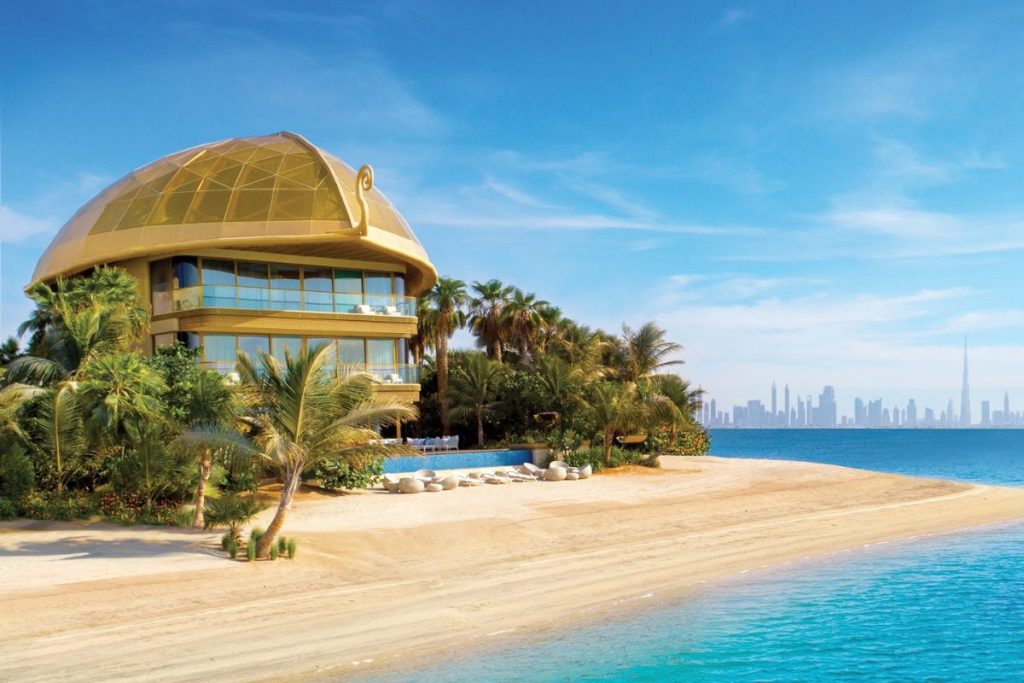
The Heart of Europe will be located on Dubai World Islands, and when open, will be a “self-sufficient upscale resort”, according the official website.
Developed by Dubai property developer, Kleindienst, the resort will is just six kilometres off the emirate’s shores.
The Heart of Europe, which has been designed using ancient Feng Shui practices, will be home to 100 to 1,500-year-old Spanish Trees, a smart police station, climate-controlled “Raining Street”, a zero-emission sustainable ferry, a coral institute, tropical gardens, among others.
19. The Link by One&Only One Zabeel
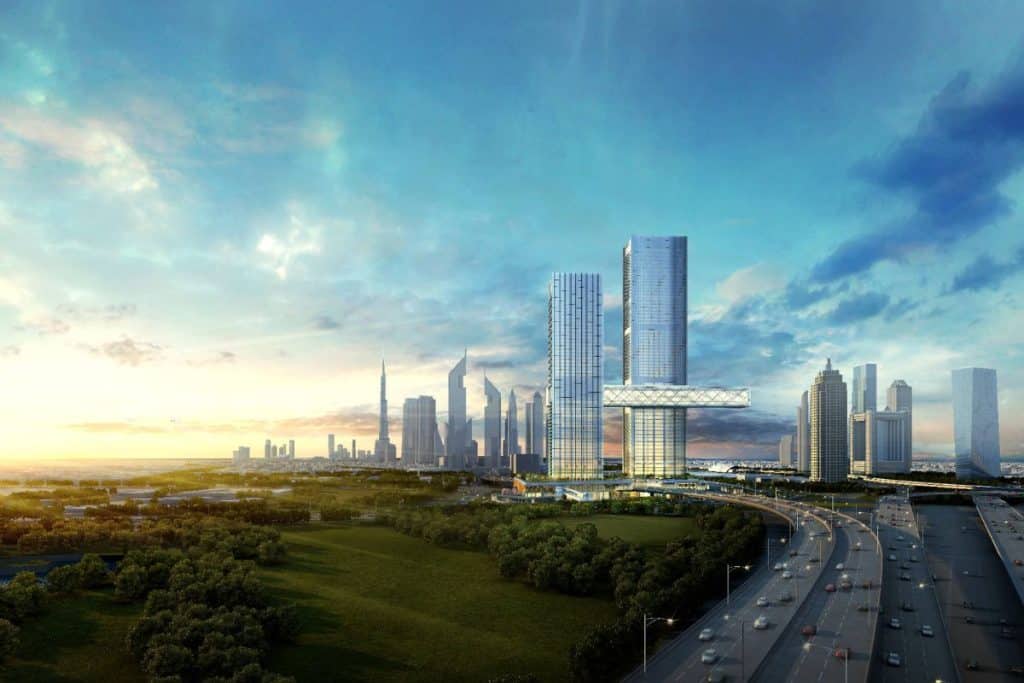
Set to open in 2023, The Link by One & Only One Za’abeel will become part of Dubai’s cityscape.
Designed by Japanese architectural firm, Nikken Sekkei, the building will feature two glass towers. Its highlighted feature is that the towers will be connected to one another by the world’s longest cantilevered building, called ‘The Link’.
The huge mixed-use scheme, called One Za’abeel, will feature at its heart a dramatic protruding steel skybridge called The Linx. Suspended 100m above the ground, the panoramic space will house restaurants and bars, an observation deck, a gym, a spa, a pool, a banquet hall and a rooftop terrace.
Suspended 100 metres above ground, the glass walls on The Link, will feature a “panoramic space” that will house restaurants and bars, an observation deck, a gym, a spa, a pool, a banquet hall and a rooftop terrace.
The Link is also said to feature a glass-walled infinity pool, and will have 229 hotel rooms and suites as well as over 90 residential units.
The upcoming building is safely positioned over Dubai’s Happiness Bridge and “undergoing its final technical preparations for its epic ascent.”
20. Meydan One Mall
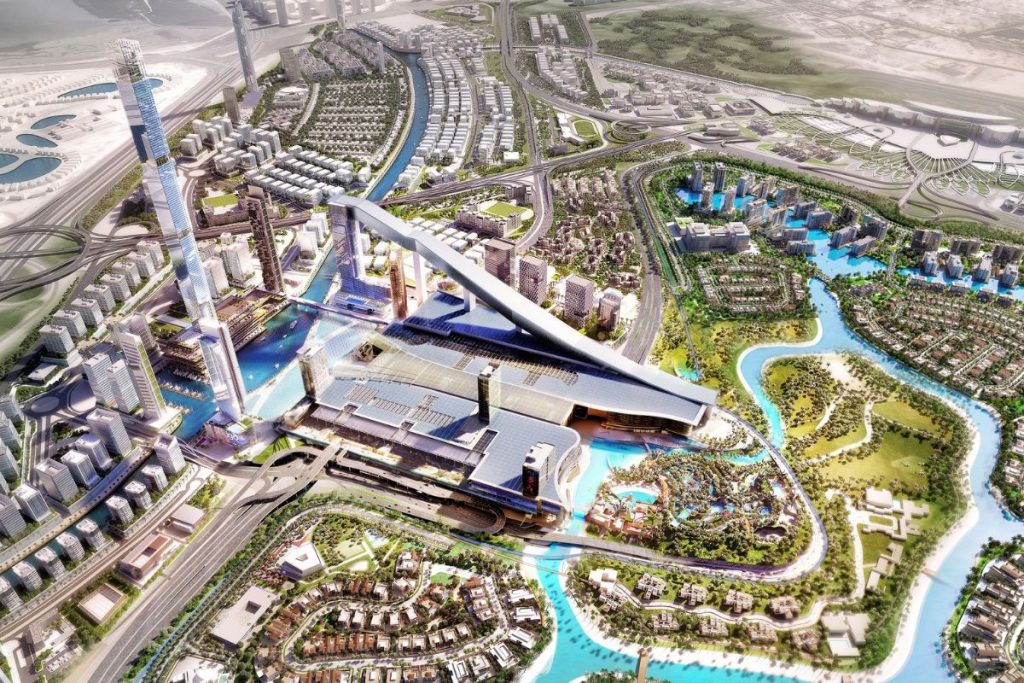
The Meydan One Mall will be located beside The Link by One & Only One Za’abeel, which will see over 550 retail outlets, as well as a 13,200 square-metre hypermarket.
The mall will also feature a “grand civic plaza” which will accommodate over 30,000 occupants. The plaza will include a “floating stage for concerts and events. It will also feature Meydan One Mall fountains, fronted by a dynamic boardwalk with extensive restaurants and cafés offering residents and visitors an exquisite experience,” the developer said in a statement. The dancing water fountain will span across 25,800 square metres.
In addition, the mall will feature 190 food and beverage outlets, a 21-screen cinema, a 1-kilometre indoor ski slop, and a 12,000 square-metre Winter Village.
Visitors at the Meydan One Mall can also access a 28,000 square-metre “entertainment experience,” a medical centre, a luxury plaza hotel, lifestyle canyon and a crystal lagoon which spans over 8.2 kilometres.
The mall will also have a parking capacity for 12,600 vehicles, the developer said.
21. Dubai Agri Hub
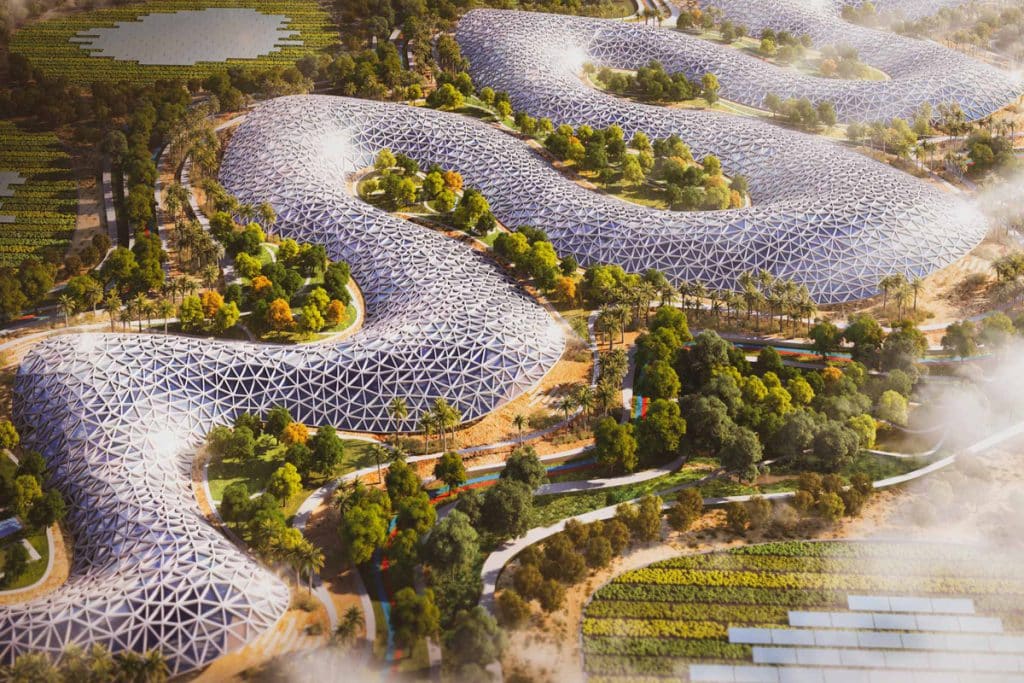
Dubai will soon be home to the world’s biggest agritourism destination, creating 10,000 jobs.
Agri Hub by URB will ensure the emirate’s food security with ample offerings around entertainment and adventure, the developer said in a statement.
“Dubai’s rural and agricultural rich communities are best positioned to become a global benchmark for agritourism,” Baharash Bagherian, chief executive of URB said.
Bagherian added that Agri Hub is a “highly attractive and activity-rich environment, which will transform Dubai into the world’s best rural visitor attraction in the world.”
At the new attraction, which is set to open in 2030, local UAE farmers will be given the opportunity to sell products directly from their farms.
Visitors can also take advantage of the sustainable venue through eco-friendly shopping, dining and edutainment offerings.
“Beyond becoming a new tourism experience in the countryside and wilderness of Dubai, the project will also promote greater health, well-being, and prosperity for rural local inhabitants,” Bagherian said, adding that Agri Hub will ultimately serve as an “innovative blueprint” for decarbonised rural tourism hubs of the future.
Agri Hub will also include 100 percent water recycling, green transit systems, bio-saline agriculture and on-site zero waste management.
The exact location will be confirmed in 2024, with construction due to begin in 2025.
22. Jumeirah Marsa Al Arab

Set to open in 2023, is the superyacht-shaped hotel Jumeirah Marsa Al Arab.
The new resort, which will feature “386 rooms and suites, four penthouses, as well as 83 luxury hotel apartment suites set amid private landscaped gardens,” Jumeirah said in a statement.
The resort will complete Jumeirah’s “oceanic trilogy,” which already has the wave-shaped Jumeirah Beach Hotel and the sailboat-inspired Burj Al Arab.
All rooms at the resort will offer guests a panoramic view of the Arabian Sea.
23. Jubail Islands
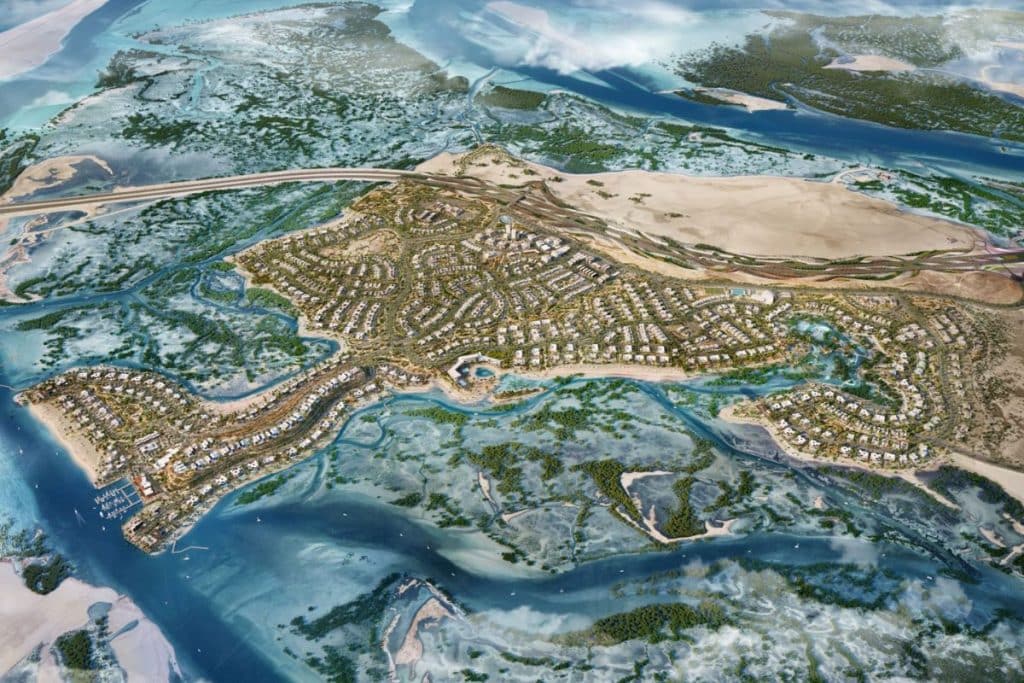
Abu Dhabi’s Jubail Islands sits between the emirates Saadiyat Island and Yas Island.
The upcoming project, spans 4,500 hectares and is already home to a massive mangrove park.
Managed by the Jubail Island Investment Company (JIIC), the development will accommodate over 5,000 residents, and is also said to build restaurants, a beach club, sports amenities, nurseries, schools, clinics, community centres, and business centres.
“The development will also feature spacious and well-appointed outdoor areas, including parks, walking tracks, kayaking stations and cycling routes for nature lovers and water sports enthusiasts,” Jubail Islands said in a statement.
The first 300 villas will be built by the Arabian Construction Company, and will be ready by the fourth quarter of 2023.
24. The Loop Dubai

Dubai will soon be home to a 93-kilometre, climate controlled highway, titled ‘THE LOOP’. The new highway is aimed at connecting over 3 million residents using a “healthy mode of transport, access to key services and locations by walking and cycling within minutes,” sustainable architecture firm URB said in a statement.
“It will provide an enjoyable climate controlled all-year environment, to make walking & cycling the primary mode of transport for Dubai’s residents, in line with its new 20-minute city initiative. The aim is to make cycling and walking the primary mode of transport for daily commutes for more than 80 percent of Dubai’s residents by 2040,” the statement added.
THE LOOP project in emirate is in place to develop a smart cycling and walking infrastructure, however it is still at its research and development phase, URB said. Key facts of THE LOOP include:
- 93 kilometres
- 100 percent renewable energy using kinetic power
- Zero emissions transport system
- 100 percent recycled water for irrigation
- Additional amenities for residents
- Promotes health and wellbeing
- Vertical farms for food security
“Dubai is the best place for entrepreneurship in urban mobility. THE LOOP project is an embodiment of that entrepreneurial spirit, which aims to make Dubai the most connected city on earth by foot or bike,” URB chief executive officer Baharash Bagherian explained.
Bagherian added: “The LOOP is the future of urban mobility infrastructures, which are more than sustainable transport systems. These types of infrastructures are spaces and utilities for people, where various leisure and community services can also be provided. These types of infrastructures are an enjoyable mode of sustainable transport, no matter the weather conditions.”
THE LOOP is in line with emirate’s ambition of becoming a 20-minute city, which allows residents to access destinations and essentials within 20 minutes by foot or bicycle.
25. World’s first 3D printed mosque in Dubai
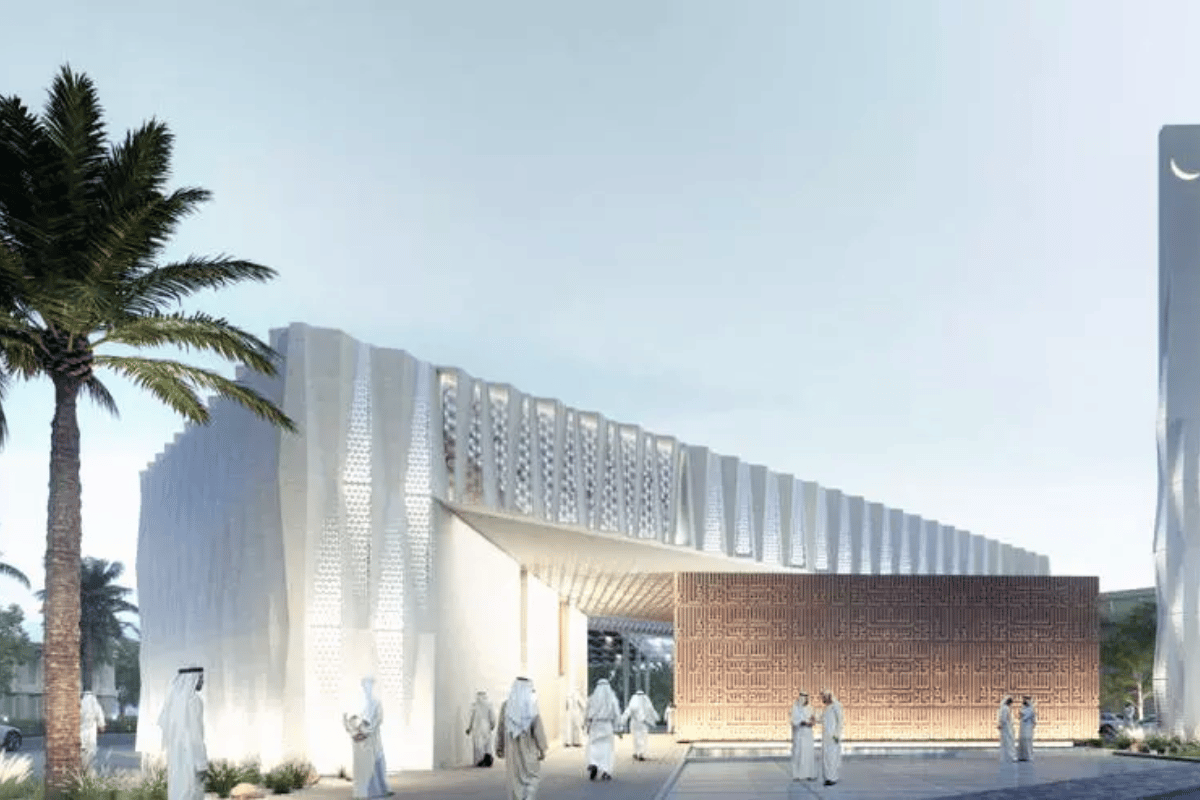
Dubai will soon be home to the world’s first fully functional 3D printed mosque, the emirate’s Department of Islamic Affairs and Charitable Activities (IACAD) revealed on Friday.
The project is in line with the vision and directives of Sheikh Mohammed bin Rashid Al Maktoum, Vice President and Prime Minister of the UAE and Ruler of Dubai.
Located in Bur Dubai, the 2,000 square metre mosque’s construction will begin in October, and will accommodate 600 worshippers. The mosque is set to open in 2025.
The mosque’s structure, which will be built using 3D printing technology, will take about four months to complete and an additional 12 months to add appropriate facilities, IACAD said.
The 3D robotic printer will be operated by three workers, and will print two square metres per hour. The printer will also mix raw materials and a special concrete mix, IACAD’s director Ali Al Suwaidi said.
The process will see the layering of a mineral-infused fluid material along a fixed route mapped by a computer. The fluid will then solidify into concrete instantly, converting the digital result into a 3D object.
“The cost is 30 percent higher than building the mosque in the normal way because it is the first of its kind in the world,” IACAD’s Al Suwaidi said in a statement, adding that cost will be similar in the future with a 30-year building guarantee.
IACAD is currently coordinating with Dubai Municipality for final approvals on the design.
The mosque is part of Dubai’s 3D Printing Strategy, which is aimed at using technology for the good of humanity thus positioning the city as a global industry leader by 2030.
“Building the first mosque in the world to be built with 3D printing technology is a distinguished project in the world built with this feature, and this work is a translation on the ground of the vision of His Highness Sheikh Mohammed,” IACAD director-general Hamad Al Shaibani said.
26. Ciel Tower
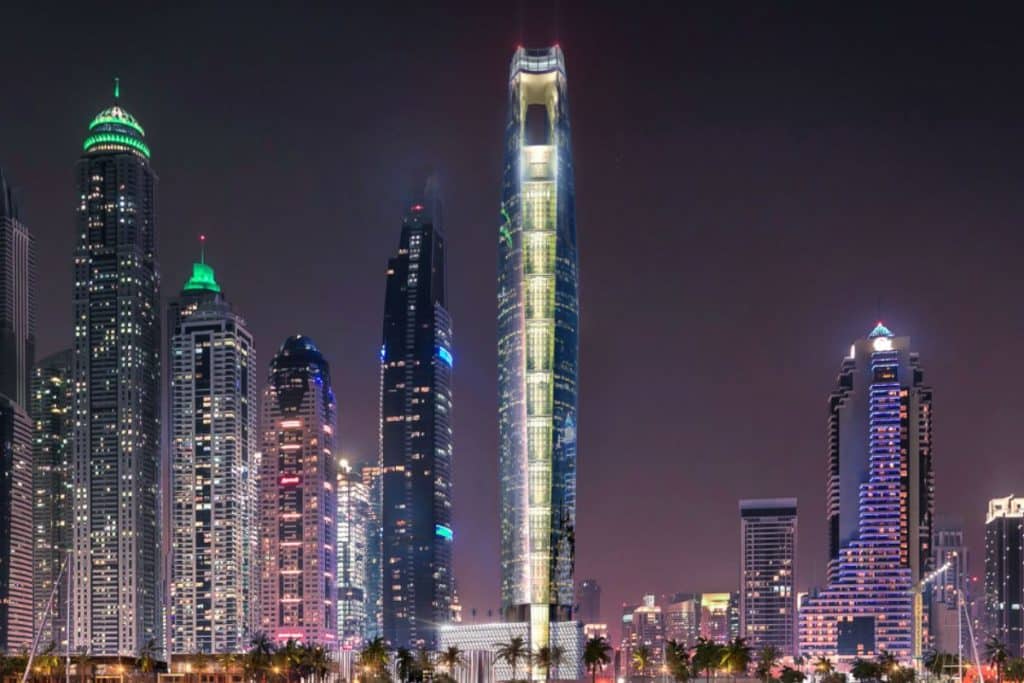
Ciel Hotel, is set to be the world’s tallest hotel in 2023. The building, which has a remarkable height of 365 metres, will add to Dubai Marina’s skyline, and is managed by Dubai-based property developer The First Group.
Designed by London-based architect NORR, the 82-floor hotel will feature a glass observation deck on the 82nd floor, offering visitors a 360-degree views across Dubai Marina, the Palm Jumeirah and the Arabian Gulf. The hotel will also feature a ‘sunset lounge’ on the 74th floor.
On completion, Ciel will surpass the Gevora Hotel — which is currently the tallest hotel in Dubai.
27. Kempinski Floating Palace
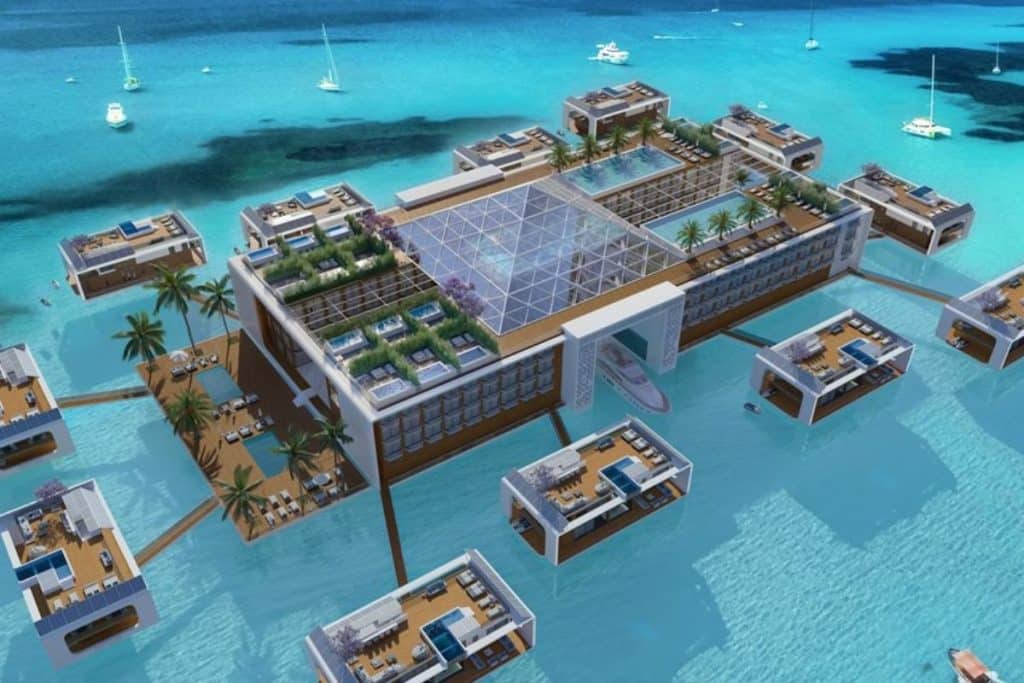
A five-star luxury hotel, the Kempinski Floating Palace, is exactly what it sounds. The floating building, which is expected to open in 2023, will feature a glass pyramid-topped main building, which is structured in four parts.
Aside from accommodating over 150 guestrooms and suites, the hotel will also be home to 12 luxury villas, connected by “pontoons”. The two, three and four houseboats are for sale, but can also be rented out by hotel guests.
“Cruising at a maximum speed of 6 nautical miles, the villas are equipped with solar panels and are designed to be environmentally friendly,” Kempinski said in a statement.
Guests are brought to the 156-room and suite hotel or their villas via speed boats, or can even opt to arrive in their own boats.
The hotel will also feature a “connected floating helipad next to an impressive yacht parking deck for up to 16 yachts,” the statement said.
Guests at the Kempinski Floating Palace can access gourmet restaurants, bars, spa, pools to boutiques, banquet areas and the possibility for even larger yachts to sail in and out at the centre of the hotel.




